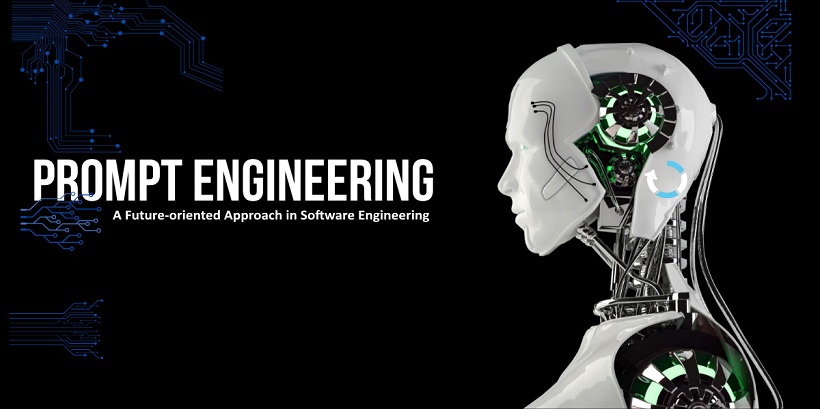Prompt Engineering, a quintessential evolution in the realm of Software Engineering, promises to revolutionize how we approach and manage software development. A future-oriented methodology, Prompt Engineering is quickly becoming a pivotal factor in how we design and implement software solutions. Such an approach holds paramount importance, especially in a rapidly evolving field like Software Engineering, where the future is as uncertain as it is exciting.
The Evolution of Software Development
Since the dawn of the digital age, software development practices have undergone numerous metamorphoses. From the early days of waterfall models to the contemporary agile methodologies, the journey has been one of constant evolution and innovation. The latest to join this pantheon of practices is Prompt Engineering. Emerging as a significant trend in the Software Engineering landscape, it offers a distinctively innovative approach to managing and executing software projects.
Understanding Prompt Engineering
At its core, it refers to the integration of innovative problem-solving techniques and streamlined processes to expedite software development. It marks the confluence of agility, innovation, and efficiency, thereby transforming the way software solutions are designed and delivered. The intersection of Prompt Engineering and Software Development opens up new avenues of productivity and effectiveness, underpinning the delivery of superior software solutions.
The Impact of Prompt Engineering on Software Development
Prompt Engineering in software development has proven to significantly enhance productivity and efficiency. Several organizations have embraced this paradigm and experienced noteworthy improvements in their software delivery. For instance, companies like X and Y have successfully implemented Prompt Engineering methodologies. Technology has reported a significant reduction in development time and enhanced project delivery.
- Accelerated Development: Prompt Engineering techniques expedite the software development process by eliminating redundant tasks and streamlining critical processes. This results in faster development cycles and reduced time-to-market.
- Enhanced Quality: By integrating innovative problem-solving techniques, Prompt Engineering significantly improves the overall quality of software. It encourages high coding, design, and testing standards, ensuring robust and reliable software solutions.
- Improved Collaboration: Prompt Engineering fosters a collaborative environment where cross-functional teams can work together more effectively. It encourages open communication and feedback, leading to better decision-making and project execution.
- Cost-Efficiency: Prompt Engineering methodologies optimize the use of resources, leading to cost savings. By mitigating risks early and reducing waste, it ensures that projects are completed within budget.
- Customer Satisfaction: With its focus on delivering value, Prompt Engineering leads to increased customer satisfaction. Fast, high-quality software releases that meet customer needs result in enhanced customer loyalty and advocacy.
Integration of Prompt Engineering into Existing Software Development Strategies
Integrating Prompt Engineering into existing software development strategies requires meticulous planning and execution. The first step involves understanding the fundamental principles of Prompt Engineering and mapping them to existing processes. Challenges are inevitable but with proper planning and problem-solving strategies, they can be effectively mitigated.
- Flexible Adaptation: Prompt Engineering can easily be integrated with existing development methodologies, making it a flexible solution for diverse project requirements.
- Innovation Promotion: Prompt Engineering stimulates innovative thinking and problem-solving, which can lead to breakthrough products and services.
- Risk Management: Prompt Engineering’s proactive approach to identifying and addressing potential risks can significantly reduce project failures and associated costs.
- Streamlined Communication: The emphasis on collaboration and open communication in Prompt Engineering can enhance team dynamics and improve the clarity of project goals and progress.
- Increased Productivity: Prompt Engineering can boost productivity levels by reducing waste and inefficiency, thereby increasing the overall output of the development team.
The Future of Software Development with Prompt Engineering
The future of Software Development appears promising with the advent of Prompt Engineering. This approach is likely to mould future trends in software development, promoting efficiency and innovative problem-solving. For organizations looking to stay ahead of the curve, adopting a Prompt Engineering approach could be an effective strategy.
- Improved Quality: By implementing Prompt Engineering, the quality of software products can be significantly improved due to its emphasis on rigorous testing and refinement.
- High Agility: Prompt Engineering equips teams with the ability to adapt quickly to changing requirements or market conditions, giving businesses a competitive edge.
- Greater Transparency: The collaborative nature of Prompt Engineering allows stakeholders to have clear visibility into the development process, fostering trust and accountability.
- Cost Efficiency: Over time, Prompt Engineering can lead to notable cost savings by reducing the amount of time spent on reworks and bug fixes.
- Customer Satisfaction: Due to its user-centric approach, Prompt Engineering can lead to higher customer satisfaction levels by ensuring that the developed software meets user needs and expectations.
Conclusion
Prompt Engineering in Software Development is a game-changer, offering a profound impact on the way we manage software projects. Its strategic approach transforms development practices, driving innovation and efficiency. If organizations embrace Prompt Engineering in their software development process. They will undoubtedly gain an advantage in the competitive and ever-changing tech industry. With its focus on delivering quality, maintaining agility, ensuring transparency, achieving cost efficiency, and enhancing customer satisfaction. Prompt Engineering is setting the standards for a more efficient and productive future in software development. Therefore, don’t hesitate to integrate Prompt Engineering into your software development process. Experience how your organization flourishes in this digital age as we transform the software development landscape together.
Author Bio:
Arjun Solanki is a Business Growth Strategist at WeblineIndia, a Leading Software Development Company. He has experience in developing and executing digital strategies for large global brands in a variety of business verticals. Apart from working on a long-lasting relationship with customers and boosting business revenue. He is also interested in sharing my knowledge of various technologies and their influence on businesses through effective blog posts and article writing.
